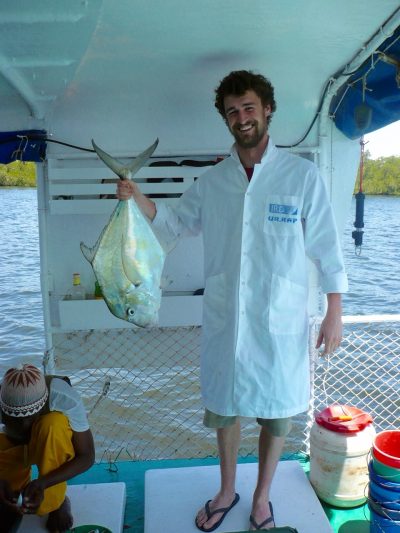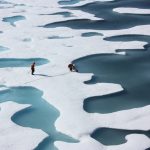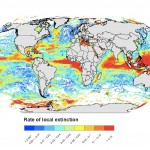Biomass is the mass of organisms in an ecosystem or community; it is thought of in terms of energy for the next trophic level – the higher chain in the food web. For example, the biomass of plankton, which may be eaten by herring, which may be eaten by tuna. Mathieu Colléter recently completed his Nereus Program fellowship at UBC. The focus of his study was on ecosystem modeling and, more particularly, work on biomass estimates for the world ocean using ecosystem models.
“This is used to predict catch potential and also assess the potential impacts of climate change. This work also drove me to study one particular parameter of the ecosystem’s trophic functioning, the transfer efficiency,” says Colléter. “This parameter defines how much production is lost at the different levels of the trophic network, and is commonly used in ecosystem models to calculate biomass estimates for marine ecosystems. However, it appears that this parameter and its variability are still poorly understood and assessed, but relevant for future research.”
Colléter worked with EcoTroph, a computer software for modeling marine and freshwater ecosystems. EcoTroph models the flow of biomass up the foodweb, which is useful for examining how the ecosystem is functioning.
He is currently writing two articles on work done during his time in the Nereus Program. One is a review on transfer efficiency — which he says has incredibly never been done before — describing current methods used to calculate this parameter, and the different results and approaches to gain confidence in the values used in ecosystem models. The other one is a research article on his biomass and catch potentials estimates for the world ocean.
“The Nereus Program was a unique experience, it enabled me to pursue my research in ecosystem modeling within an interdisciplinary environment. I was able to directly discuss with economists, oceanographers, sociologists and more on how the results of my biomass mapping could be used in their research or the contrary,” says Colléter. “It’s very exciting to have this connection with other domains of ocean sciences, and be able to develop direct collaborations. The research environment is very welcoming and stimulating; we have great collaborations and discussions on very diverse topics.”
Colléter will be starting a Master in Advanced Global Studies degree specialized in Environmental Policy at the Parisian School of International Affairs.
“My experience within the Nereus research program strengthened my will to pursue a career at the intersection between science and policy making to develop a better understanding between these two entities, and work on the topics of marine ecosystems and climate change,” says Colléter.
“I would to thank people from the Nereus program for the great times we had together. I would like to particularly thank Yoshitaka Ota and William Cheung for being great mentors and inspirations for me. I would also like to thank the Nippon Foundation for giving me the opportunity to pursue my research in this unique interdisciplinary research program.”









